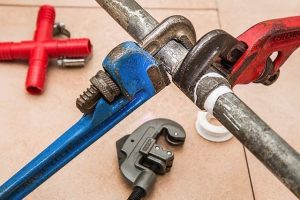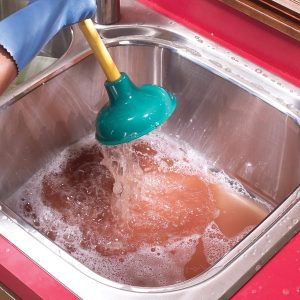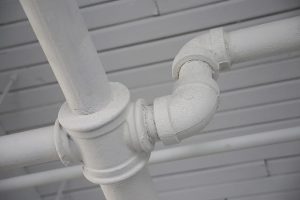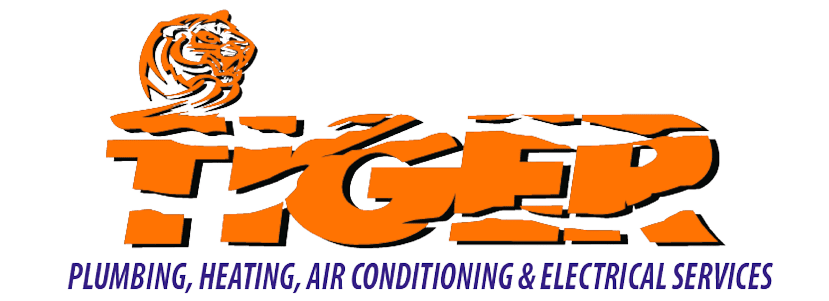Financing
101 Plumbing Tips, Tricks and Advice You Need to Know
Plumbing is something that every one of us uses and relies on. From our bathrooms to our kitchens, ensuring that all of your plumbing pipes are running smoothly and efficiently is important to your health and happiness. So, here is a list of great plumbing tips, tricks and advice, every homeowner should know!
- Repair leaky faucets promptly; a leaky faucet wastes gallons of water in a short period.
- Insulate your electric hot-water storage tank and pipes, but be careful not to cover the thermostat.
- Insulate your gas or oil hot-water storage tank and pipes, but be careful not to cover the water heater’s top, bottom, thermostat or burner compartment; when in doubt, get professional help.
- Install non-aerating low-flow faucets and shower heads, to save major bucks on your water bill
- Although most water heaters last 10-15 years, it’s best to start shopping for a new one if yours is more than 7 years old.
- Doing some research before your heater fails will enable you to select one that most appropriately meets your needs.
- Lower the thermostat on your water heater; water heaters sometimes come from the factory with high-temperature settings
- A water heater setting of 115°F provides enough hot water for most users
- Drain a quart of water from your water tank every 3 months to remove sediment that impedes heat transfer and lowers the efficiency of your heater.
- If you heat with electricity and live in a warm and sunny climate, consider installing a solar water heater.
- Egg shells are a great way to clean garbage disposals
- Take
 more showers than baths. You use 15-25 gallons of hot water for a bath, but less than 10 gallons during a 5-minute shower.
more showers than baths. You use 15-25 gallons of hot water for a bath, but less than 10 gallons during a 5-minute shower. - Choose a water heater with an appropriate first-hour rating (FHR) by estimating your family’s peak-hour demand for hot water
- Determine the appropriate fuel type for your water heater. If you are considering electricity, check with your local utility company for off-peak electricity rates for water heating.
- Natural gas, oil and propane water heaters are less expensive to operate than electric models.
- For safety as well as energy-efficiency reasons, when buying gas- and oil-fired water heaters, look for units with sealed combustion or power venting to avoid back-drafting of combustion gasses into the home.
- Do not install the water heater in an unheated basement.
- Try to minimize the length of piping that runs to your bathroom and kitchen.
- If your drain is clogged you can pour half a box of baking soda and ½ a cup of vinegar down the drain, then wait 30-45 minutes and pour boiling water down the drain.
- For electric water heaters, install a timer that can automatically turn the hot
 water off at night and on in the morning. A simple timer can pay for itself in less than a year.
water off at night and on in the morning. A simple timer can pay for itself in less than a year. - Toilets and sinks require different types of plungers to remove clogs. Make sure you’re using the correct one.
- Take sure to check all of your pipes for leaks, even just a small leak can waste nearly 20 gallons of water per day. Just imagine what a larger leak can do.
- Don’t go crazy when using detergents, bleach or other chemicals, overusing these products can kill the natural bacteria that your septic system needs
- Septic systems should be checked twice a year, to ensure they’re running properly
- Using biodegradable soaps will help you conserve more water
- A spring loaded timer that attaches directly onto your outdoor faucet, will help prevent you from over or under watering your garden
- Check your water meter when no water is being used then check it again about eight hours later. If your meter has moved, that’s a clear sign that you may have a leak
- A leaky toilet can increase your water usages by more than 40%, you’ll want to repair the leak ASAP to save money on your water bill
- Have an older shower head? You can save up to 7.5 gallons of water per minute by replacing it with a newer model.
- If you suspect a leak in your sink, toilet, water main, etc. turn off the water before attempting repairs
- If you have never been trained on how to use an auger, you can cause serious and expensive damage to your pipes.
- Keep our number handy: 1-888-9TIGER1. You never know when you’ll have a plumbing emergency.
- Don’t overload your garbage disposal with too much food at one time
- Remember to use lots of water while running your garbage disposal, to prevent clogs
- Never put rice, pasta, bones, corn cobs or beans in your garbage disposal
- To stop an overflowing toilet locate the valve behind your toilet and turn it off immediately
- If plunging doesn’t fix your clogged toilet, it’s time to contact a professional plumber
- Those toilet flushing tabs, are horrible for your toilet and will create major problems down the road
- If nothing happens when you flush, it means you have a loose handle or valve
- Clogged toilet? Let it sit for a few hours or overnight, then try flushing again. Often times this is all you’ll need to do, to fix the issue. Just be ready for the water to overflow if this doesn’t work.
- You can also add some hot or boiling water to your bowl and try flushing, to correct a clog.
- Adding dish soap to the bowl is another method that might remove a clog
- Distilled vinegar can remove hard water stains on your shower head. Just tie a bag of vinegar around your shower head and leave it there for a few hours. Then you can simply wipe away the stains with a cloth.
- Letting Coke soak in your toilet, is the easiest way to clean your bowl.
- To clean your dishwasher, pour ½ cup of white vinegar into the detergent cup and simply run the empty machine for one full cycle.
- You can use half a lemon to rub away any hard water stains on your
faucets. - Disposable diapers, feminine hygiene products, hair, coffee grounds, toothpaste, food particles, oil from cooking and mineral build up are the most common causes of clogged drains
- Small bathroom? A corner toilet is a great way to save space!
- Looking to save on your water bill? Place a bucket in the shower to catch water, which you can later use to wash your vehicle
- Most newer water meters have an easy to read leak indicator on the face of the dial
- It’s a myth that low flow toilets don’t perform as well as regular flow toilets
- WaterSense labeled toilets get the job done
- High-efficiency toilets do not cause problems with home plumbing systems
- WaterSense labeled toilets meet or exceed plumbing standards
- High-efficiency toilets are available in a wide range of models

- Plastic piping is superior to metal piping in almost every way
- Plastic piping is cheaper than metal
- Plastic piping is much easier to install, adjust and tighten if a leak develops, than metal piping
- Plastic piping, unlike metal, won’t corrode.
- When a metal drain leaks it’s usually a great idea to replace the metal with plastic piping
- A clog can often be yanked out with an easy tool like a Zip-It or other flexible-shaft pick-up tool
- A wet/dry vac can often suck out a clog
- Both tape and dope work equally as well when you’re sealing pipe threads
- Tape is only meant for pipe threads, don’t use tape on compressors or other connections
- “Plumber’s putty,” can damage plastic and it can leave stains.
- You can remove that gross tub ring by sprinkling the tub with salt and taking half a piece of grapefruit use it as a scrubber
- Use food coloring, to test for a leaky toilet. Place a few drops in your toilet’s water tank. Wait a few hours, then check the bowl to see if there is any color there. If there is, it’s an indicator that you have a leaky flapper
- You can use a wet/dry vac to retrieve items that fall into the toilet
- By tying a piece of string around your faucet that reaches down to the drain, you can quiet the sound from a dripping faucet.
- The most common causes of dripping faucets are worn washers, bad internal seats or worn/faulty faucet cartridges
- If your water pressure is too high, like over 80 pounds per square inch, for example, it can cause damage to your faucet and create a leak
- If your kitchen sink is clogged by grease, you can remove the clog by pouring ¼ cup of dish soap down the drain, wait about 20 minutes and then pour roughly a quart of boiling water in the drain
- Pouring chemicals down your drain will corrode the pipes.
- The newer, thicker chemicals meant to remove clogs from drains will often cause or worsen clogs.
- A pedestal sump pump has the motor attached to the top of a shaft; this motor is not designed to be under water.
- A pedestal sump pump works well if you have a smaller diameter basins
- Sump pumps usually come with an automatic on/off switch for your convenience
- A float switch is the most common sump pump automatic switches.
- Sump Pump float switches are designed to raise with the rising water levels your basin and the pump is started after the water reaches a certain level.
- Submersible sump pumps are designed to sit in the base of the sump basin, below water level.
- Submersible sump pumps are more adapted to larger sump basins
- Submersible sump pumps are typically quieter than pedestal pumps.
- To determine the size of sump pump you need, you must know how much water you’ll need to be pumped, how high the water will be pumped and the length and size of pipe.
- Do not assume that having a large horsepower sump pump will be the best choice for you, do your research before buying
- A large horsepower sump pump, in a small diameter basin, will cause the pump to cycle more frequently, shortening your pumps life.
- Pump capacity charts are available through professional plumbers and installers or pump manufacturers or they can be found on the web.
- When installing a sump pump, it is usually recommended that a check valve be installed, this prevents water left in the outlet pipe from flowing back into the basin
- Some check valves can be attached to the sump pump itself, while others are placed farther up the outlet pipe
- A dedicated electrical circuit should be used for the sump pump. Most pumps have a high amp load when starting
- Do not use an extension cord to plug the pump into the outlet
- To maintain a sump pump, periodically check the system.
- Make sure the float in your sump pump is free of obstructions
- Observe the outlet on your sump pump to make sure water is actually being pumped
- Listen for unusual noises when your sump pump is running, strange sounds are signs something is seriously wrong
- If a sump pump fails, and water gets into the basement, do not attempt repairs without first turning off the power to all basement outlets.
- If you call a plumber right when you first notice a leaky faucet you’ll likely only need a simple, small repair, but if you wait a few months, the leak will worsen and cause more damages leading to more costly repairs
- Watching home improvement shows and reading DIY plumbing blogs, doesn’t make you a master plumber. Plumbers spend years training and learning the plumbing trade, it’s best to leave big plumbing issues to the professionals and save yourself a headache.
- A leaky toilet can waste enough water to fill an Olympic-sized swimming pool in one year. Now just imagine what that is doing to your bill
- Many toilets really do run only at night; that’s because people use much less water during these hours and in many municipal water systems, the water pressure rises considerably during this time
- If you only notice your toilet running in the middle of the night, there is a good chance that the water level in your tank is set too high
- If you have plumbing concerns call 1-888-9TIGER1 or visit TrustTiger.com to have a plumber address and issues you may have.
Be sure to check us out on Facebook, Twitter, Pinterest, and Instagram
Financing
Options
See how fast we can get to you!
Join A
Winning Team
Winning Team















